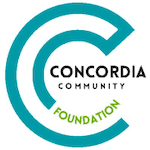
How Nutrition Needs Change as You Age
Benefits of Proper Nutrition for the Elderly
Eating a proper diet is vital at any age to help us stay active and healthy, but for seniors, getting the right nutrition daily becomes even more important. A good diet provides numerous benefits, like helping build stronger bones and teeth, increasing cognitive function, aiding in digestion, and keeping the body functioning as it should on the whole. Proper senior nutrition can also help reduce the risk for issues like heart disease, high blood pressure and cholesterol, prevent illness and diseases like diabetes, and promote higher energy levels.
Debunking Senior Nutrition Myths
Throughout the aging process, metabolisms do start to slow down. This means the level of activity seniors participate in can decline, which results in their bodies needing less calories to function as they should. However, even if the elderly’s appetite isn’t what it used to be, eating well later in life is still important. Better eating habits lead to feeling better, stronger bodies and the ability to maintain an independent living lifestyle longer.
One of the biggest myths surrounding senior nutrition is that as long as seniors are eating something, they’ll stay healthy. For instance, pre-packaged snacks and frozen dinners are generally high in sodium and fats, and too much of them can ultimately lead to malnutrition.
Also, it’s been proven that seniors who enjoy meals in a social setting tend to eat better than those who eat alone. When an elderly person is socially isolated, this can lead to depression and less of an inclination to cook a healthy meal for just one person. Or, when seniors don’t feel hungry, they may believe skipping a meal here and there is no big deal. However, this can lead to overeating when they do sit down to eat, which can actually further decrease their appetites altogether!
It’s also not necessarily true that all seniors will lose their appetites as they age. Even though our metabolisms slow down, when the elderly lose their appetites altogether, it’s usually a sign of a more serious health problem.
How to Promote Healthy Eating for Seniors
There are a few ways to ensure seniors are getting the nutrition they need, including:
• Set a schedule for eating. Since humans are creatures of habit and thrive on routine, seniors should set a regular schedule for meals and snacks. Eating at the same time each day helps to increase the appetite.
• Increase nutrients, not portion size. It’s common for seniors to get overwhelmed by large portions of food piled up on their plates, resulting in most of the food going to waste. Instead, focus on smaller portions full of nutrients, like spreading peanut butter on toast instead of butter or preparing oatmeal with hot milk instead of water.
• Prepare snacks ahead of time. Chop up veggies or portion out nuts and trail mix into small containers so a healthy snack is always readily available, especially one that promotes brain health and memory care. This will help seniors avoid grabbing prepackaged chips or cookies to hold them over until mealtime.
• Don’t get stuck in a food rut. Seniors shouldn’t be afraid of trying new foods and flavors! While it’s common for the elderly to get comfortable with certain meals, adding new spices or marinades are an easy way to mix things up a bit and stimulate the appetite.
• Reward with a treat. While it’s important for seniors to avoid overindulging, enjoying a small treat that’s around 200 calories, like dark chocolate for a sweet tooth or pretzels for a salty craving, are healthier ways to reward themselves.
Enjoy Exceptional Dining Services at Concordia
At Concordia Life Care Community, we have a variety of delicious, healthy dining options available to residents with a menu that changes daily. Contact Concordia today to learn more, or schedule a visit to see the available residences, including assisted living at our life plan community.
Health & Aging


